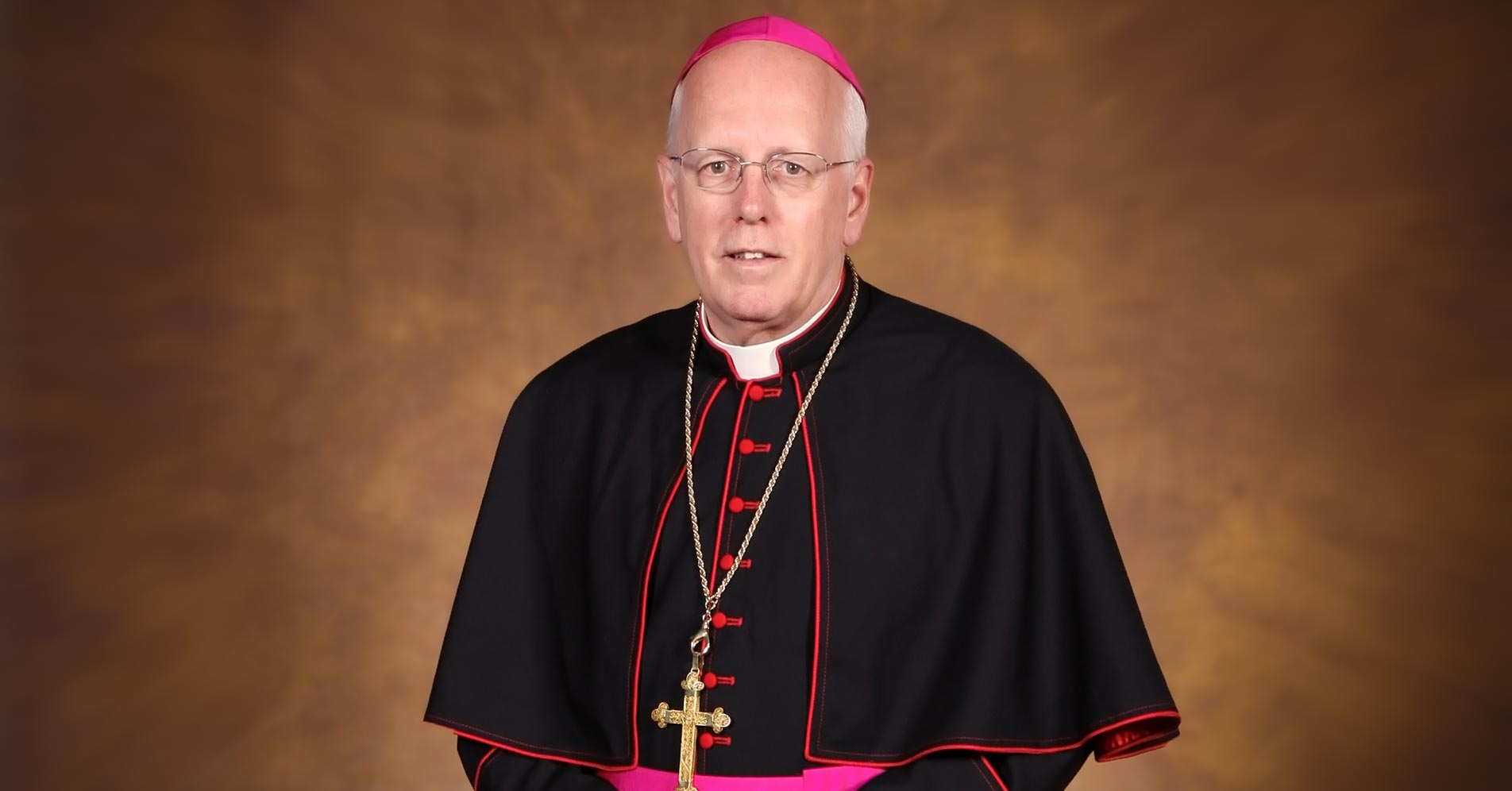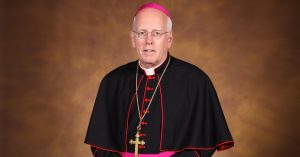
“Let the one among you who is without sin be the first to throw a stone at her… And in response, they went away one by one…” John 8:7
The start of a new year is an opportunity for reflecting on the year past and making resolutions for amendment. I am not sure many of us do so in part because owning up to the past can be painful and even well-intended amendments are difficult to keep.
Among the new year’s resolutions I pray for is a restoration of civility in all areas of life for the common good.
As we begin this new calendar year, having looked back and looking forward, I would encourage us all to make a greater commitment to be respectful to one another even those with whom we may disagree. Civility has been described as “polite, reasonable and respectful behavior”. (English Language Learning Dictionary) Being civil with one another does not require compromise of principles or restriction on defending the truth. It does set the scene for constructive dialogue and forthright thoughtful discussion based on substance and not personal animus.
Famed writer of another era Ralph Waldo Emerson suggested that “There can be no civility without a deep morality.” The lack of civility in government, in the Church, in families and other personal relationships is a byproduct of the collapse of moral and ethical rooting grounded in the teachings of Christ. The second great commandment is to love our neighbor as ourselves. That is not the romantic and surface love so much of the media and political and spiritual commentary portray. It is living the core teaching of the faith to respect life from conception to natural death and all those years in between. Those years in between can be the hardest to live given our diversity in family, experience and expectations.
The benefit of the new technologies for communication is instant access to information and opinions on the issues and prominent personalities of the day. However the down side is some of the blogs and the recording of comments, mostly anonymous, which are often angry and often uninformed.
I recently read of the not so funny joke: “Twas the night before Christmas and all through the house, everyone was on their phones.” We need to speak with one another directly and learn from one another in personal conversation. Technology cannot replace the value of personal interchange.
Before I became a priest I was a lawyer and served as legal counsel to a governor of Wisconsin. I remember one meeting with legislators and the governor. One opposite party leader declared that the rule which the legislators followed was “gotcha” politics, placing an opponent in a position hard to defend politically. That is a rule that is based on political advantage rather than what is best for all, the common good.
We recently enjoyed the Christmas at the Cathedral concerts. How beautiful were the stirring sounds of the concert orchestra. Such ensembles include many different instruments which their players with great discipline practiced individually. Then they come together and jointly raise spirits with sounds in harmony without compromising their unique instruments.
Imagine what the sound would be if the string section was not respectful of the horn section or the harp player refused to respect the piano player. What it would be like in choirs if the sopranos were in conflict with the tenors or the altos with the basses. Because they respect one another and appreciate the others gifts something beautiful results.
The motto of the United States is “e pluribus unum”, from many one. The many do not sacrifice their unique identity but blend it with the uniqueness of the others and respect their dignity for the good of all.
The story is told of a bishop who was to celebrate the sacrament of confirmation for handicapped children who were institutionalized. The chaplain suggested to the bishop that he not speak for more than two or three minutes because of the students limited capacity to follow and understand.
The bishop said to them: “Dear children, your mom and dad and brothers and sisters all love you. That’s why they gently stroke your head and your hair and your cheeks. And that’s what happens when you are confirmed. The Good Lord gently strokes you because he loves you so much. So when I make the sign of the cross on your forehead with the holy oil, our dear Father is stroking and caressing you.”
When the bishop touched a boy afflicted with cerebral palsy, the boy grimaced but with great difficulty said the word “stroke”. His mother with tears wiped away the saliva flowing from his mouth. The boy had understood the message that God was stroking him with love.
The bishop later remarked, “You know, I don’t know what others might think about that theology, but basically this is what God does. God stroked the people of Israel. The father stroked the Prodigal Son. Jesus stroked the children, stroked and caressed the lepers, laid his hand on the eyelids and heads and ears of those who were handicapped and afflicted.” (Bausch)
None of us is without sin. As I have aged and now I look back on my 75 years, the truth is painfully apparent. Yet I also look to the future with hope because God “strokes” us all with His love and mercy despite our frailties.
May we in the new year and the years ahead, especially in the Church, take the advice of Saint Mother Teresa to “see Jesus in everyone.”
As anonymous reminds us: “There is so much good in the worst of us, and so much bad in the best of us, that it ill behooves any of us, to find fault with the rest of us.”
“Let the one among you who is without sin be the first to throw a stone.”

